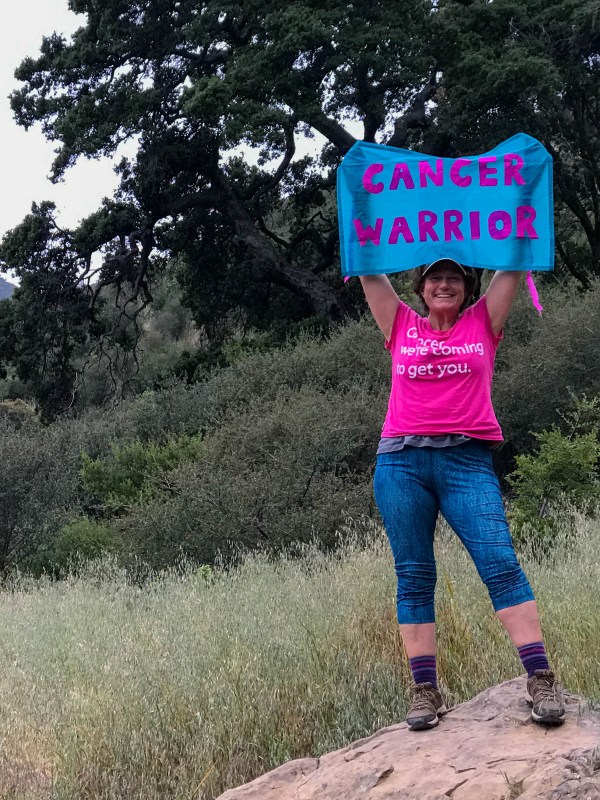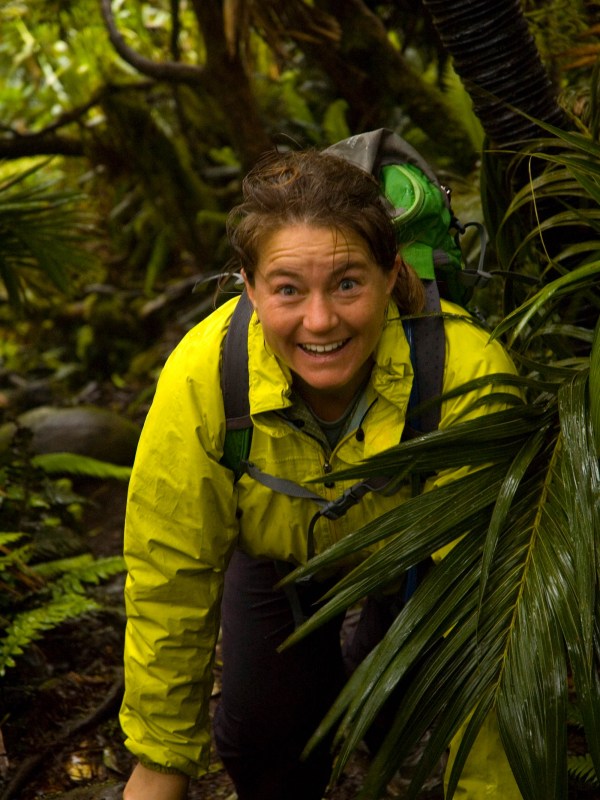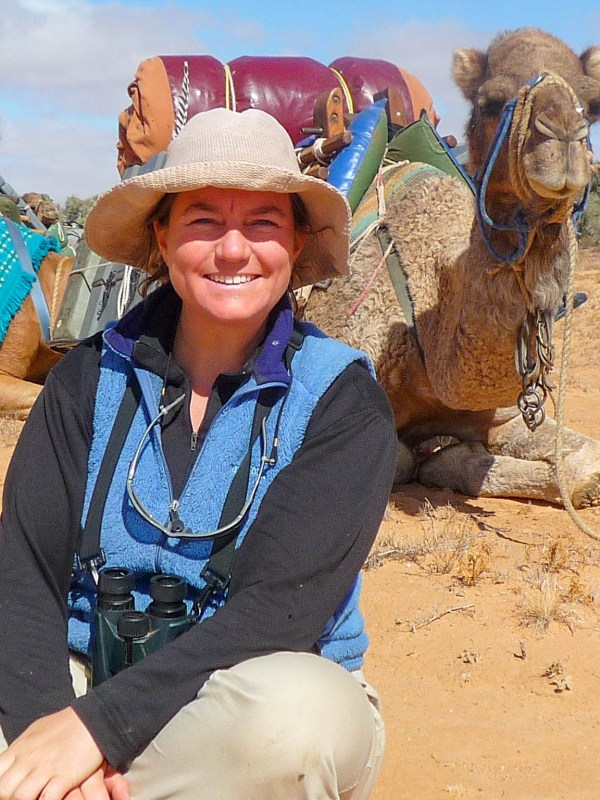Michelle Elyse McCutchan Kendall
Michelle Elyse McCutchan Kendall died at her home in Santa Barbara, surrounded by family and friends, on September 26th, 2021. She was 48.
Michelle was born in Santa Barbara and resided there much of her life. She lived large, bringing enthusiasm and intention, compassion and generosity, to everything that she did. Happiest in the outdoors, whether under the waves or on top of a mountain, she had an irrepressible spirit of adventure. Michelle studied biology and geography and brought a scientific, evidence-based perspective to bear on all aspects of her life, from building environmental sustainability, to pursuing happiness, to combating ovarian cancer -— the disease that eventually overcame her. Yet, at the same time, she was warm, funny, gracious and loving, and cultivating a broad network of friendships just as assiduously as she cultivated the salvias and tomatoes in her garden. Wherever she went, Michelle touched people, often more deeply than she realized —- she was astounded by the heartfelt stories of appreciation that arrived during her final days; many of her friends said she inspired them to live up to their hopes and aspirations.
Michelle’s love of adventure, the ocean, and the outdoors was kindled from a very young age. When she was four she sailed with her parents from Santa Barbara to Tahiti on a 44’ sailboat. She backpacked and rambled throughout the high country of the western U.S. in her teens and the travel bug continued throughout her life. She and her husband of 13 years, Bruce, took a wide variety of adventures; they particularly prized immersive experiences in remote destinations. Michelle’s favorite journeys included traveling through the Okavango Delta by dugout canoe, trekking through Australia’s Simpson Desert with camels, and walking the Shikoku Buddhist pilgrimage route in rural Japan.
Awarded a “Certificate of Unsinkability” by her junior high school when she was 12, and crowned “Most Likely to Drown for a Greenpeace Cause” by her AP English teacher, Michelle’s passionate commitment to the environment began early. By her senior year she had brought, for the first time, an Earth Day celebration to Santa Barbara High School. “Everything we do, everything we throw away, drastically affects our planet,” she said at the time. “Eventually, it will get through that recycling is not just a hippie thing” (Santa Barbara Independent, 19 April 1990). Her first job was at the Santa Barbara Sea Center, where she taught visitors about the wonders of the marine world, and dove under the pier to collect live animals for the touch tank. She continued to work for the environment at the Channel Islands National Marine Sanctuary and The Nature Conservancy.
Michelle’s final passion was to bring awareness to the benefits of cannabis to aid in the treatment of certain cancers. Michelle was diagnosed with Stage 3C ovarian cancer in 2016, at the age of 43. She loved life and fought hard to keep it. She continued to travel between treatments, crossing off the places on her bucket list, carrying a flag emblazoned with “Cancer Warrior.!” But her cancer journey was also painful and challenging, as it is for most battling this disease. A friend encouraged her to try cannabis to aid her sleep. She was getting frequent medical testing at the time, and was surprised to find that some cannabis strains slowed the rise, or even lowered, her cancer blood marker. Excited, she dove into both the peer-reviewed literature and online testimonials from patients who claimed that cannabis slowed or cured their cancer. It was complicated: while there were fantastic success stories, some pa-tients were not cured, or had the benefit suddenly end; and recent scientific research was showing tremendous variability in outcomes.
It turns out that “cancer” encompasses a wide range of biochemical pathologies, and cannabis contains hundreds of bioactive compounds, with concentrations differing between strains, cultivation techniques, and processing approaches—so true progress on treating this disease requires sustained research effort.
The first scientific study showing that cannabis could shrink cancer tumors was published in 1975. But this finding contradicted the highly politicized decision, five years previously, to list marijuana on Schedule 1 (“no accepted medical use”) of the Controlled Substances Act. Rather than allowing science to potentially overturn this designation, the U.S. Drug Enforcement Agency severely restricted cannabis research; even today, U.S. scientists who wish to study non-hemp cannabis must go through a years-long permitting process. Frustrated by 50 years of federal inaction (which curtails research even in states that have legalized cannabis), Michelle teamed up with a local filmmaker to tell her story, attempting to shift the national conversation about cannabis. Her short film, Schedule 1: Unlocking the Anti-Tumor Properties of Cannabis, was released just as the COVID-19 pandemic hit California, so it didn’t get the public exposure that she had hoped for. But through the film she connected with scientists, clinicians, and journalists, giving a human face to a largely overlooked facet of U.S. drug policy. In 2019, Michelle wrote, “If I die of this disease, don’t say I died of cancer. I died of the suppression of science.”
In 2020, Michelle established a partnership with a cannabis scientist in Israel (where research into medical cannabis is encouraged); with Michelle’s funding and inspiration, the scientist and her team set out to identify cannabinoid compounds that might kill ovarian cancer cells. The results from the first round of experiments, to be published later in 2022, are very promising, and before she died, Michelle and her husband Bruce committed pledged to continueing to funding this research, with the goal of identifying new classes of lifesaving medicines. Sadly, these results came too late to save Michelle, but she hoped that her work would create a lasting legacy of lifesaving treatments for other women afflicted with this terrible disease.
Once it became clear that the final recurrence of the cancer could not be controlled, and her body was rapidly failing, Michelle elected to make use of California’s End of Life Option, which allows terminally ill patients to end their suffering under medical supervision, at the time of their choosing. Michelle died as she had lived the best moments of her life: intentionally, outdoors, and embedded in a web of love and community that she had fostered. She threw a farewell party, gathering dozens of close friends and family members in her back yard. Just as at a funeral or wake, we shared joyful memories and described how she had touched our lives — but we got to tell all that to Michelle! At the end, Michelle gave a short speech, including an exhortation to carry on the work to normalize and develop cannabis medicine; her last words called us all to “come closer and gather around her.” And then she peacefully slipped away, holding her husband’s hand and bathed in an ocean of love. All who were present were transformed by the experience, and will carry Michelle in their hearts forever.
Michelle is survived by her husband, Bruce Kendall; her mother and stepfather, Evelyn and Jim Cavins; her brother, JJ Cavins; and a large network of friends and fellow advocates.
A celebration of Michelle’s life will be planned for Spring or early Summer 2022, Covid permitting. Michelle requested that you honor her legacy by fighting to normalize cannabis medicine, whether by advocating for an end to the restrictions on cannabis research in the U.S. or by supporting the ongoing research into cannabis as a treatment for ovarian and other cancers. Visit schedule1movie.com and CannaOncResearch.com for more information.



